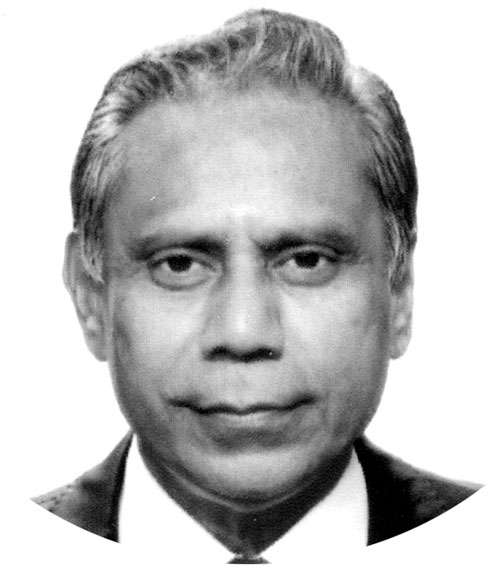Whither Afghan great game ?
THE great game was a political and diplomatic confrontation that existed for most of the 19th Century and beginning of the 20th Century between the British and Russian Empires over Afghanistan and neighbouring territories in Central and South Asia. It also had direct consequences in Persia and British India.
Britain feared that Russia planned to invade India and that this was the goal of Russia’s expansion in Central Asia, while Russia feared the expansion of British interests in Central Asia.
As a result, there was a deep atmosphere of distrust and the talk of war between two of the major European empires. Britain made it a high priority to protect all the approaches to India, while Russia continued its conquest of Central Asia.
The great game is said to have begun on 12 January 1830 when Lord Ellenborough, the president of the Board of Control for India tasked Lord William Bentinck, the Governor-General of India, to establish a new trade route to Bukhara. British influence was to be extended into Afghanistan and it was to become a buffer state.
The First Anglo-Afghan War, also known by the British as the Disaster in Afghanistan was fought between the British Empire and the Emirate of Afghanistan from 1839 to 1842. It was one of the first major conflicts during the Great Game.
By January 1842, the Afghans were in full revolt. With a weakening of military discipline, the British decided to withdraw from Kabul. The Kabul garrison of 4,500 troops and 12,000 camp followers left Kabul for Jalalabad that was 80 miles and 5 days’ march away.
They were attacked by 30,000 Afghans. Six British officers escaped on horseback but only one, the wounded Dr William Brydon riding on a wounded horse, made it to Jalalabad.
Over one hundred of the British and 2,000 sepoys and camp followers were taken hostage and the rest killed. So perished the “Army of the Indus”.
On 12 November 1893 the Agreement between Great Britain and Afghanistan was signed in Kabul.
The Agreement reconfirmed the 1873 Agreement, required Afghanistan to withdraw from the territory north of the Amu Darya that it had occupied in 1884, and called for delimitation of the boundary east of Lake Sari. Some analysts opine that Britain lost the Great Game in Afghanistan.
Its failure occurred at the end of the First Anglo-Afghanistan war in 1842 with the British withdrawal from Afghanistan. The failure to turn Afghanistan into a client state meant that The Great Game could not be won.
In 1889, Lord Curzon, the future Viceroy of India, commented: Our relations with Afghanistan in the forty years between 1838 and 1878 were successively those of blundering interference and of unmasterly inactivity.
There is an element of déjà vu here. The Great Game reoccurred in the Twentieth Century when erstwhile Soviet Union invaded Afghanistan in 1979 but after a decade of being mauled by the Afghan Mujahedeen backed by the USA and Muslim Ummah, beat a hasty retreat.
The breakup of the USSR is attributed to its overextending itself in Afghanistan. During the Twenty-first Century, the USA and its allies invaded Afghanistan as part of a punitive action against the 9/11 attacks.
They displaced the Taliban but after two decades of struggles, losing 3,487 troops and spending two trillion dollars, the US too had to withdraw, following the return of a victorious Taliban.
The new great game that will apparently be played in Afghanistan will have some new and an old set of players.
The Taliban, in all probability will be the major players in the government but may include some politicians from other strata of Afghan society, including women and non-Pashtuns.
However, the powers that will wield major influence will be China and Russia, supported by Pakistan.
The US had not learnt from the “Graveyard of Empires” theory about Afghanistan and suffered immensely.
Irrespective of the Occident and India conducting massive media campaigns to denigrate the Taliban, the new rulers of Kabul are a far cry from the Taliban of the 1996-2001 era.
Majority of them comprise youth educated in the west, who are media savvy, technologically sound and cognizant of the nuances of international politics and diplomacy.
Two images stand out on September 1st, ten days before the twentieth anniversary of the 9/11 attacks.
The first is of Major General Chris Donahue, commander of the storied 82nd Airborne Division, who was the last US soldier to board the final flight out of Afghanistan a minute before midnight on 31st August.
Taken with a night vision device from a side window of the C-17 transport plane, the ghostly green and black image of the general striding toward the aircraft waiting on the tarmac at Kabul’s Hamid Karzai Airport was released by the Pentagon hours after the United States folded up its two decades military presence in Afghanistan.
The other image is of the Taliban, flanked by the group’s elite commando unit, Badri 313, triumphantly marching into Kabul’s international airport, after the final US troop withdrawal. In this milieu, Pakistan’s importance has been reinstated.
India is out of the great game, the Tehreek-e-Taliban Pakistan will not be allowed to operate from Afghan soil, while foreign ministers from various European nations rush to Pakistan, to confer with Islamabad before taking the step of recognizing the new dispensation in Kabul.
Pakistan’s patience and perseverance has paid off, now it has to be prudent in its decision making.
—The writer is retired PAF Group Captain and a TV talk show host.










